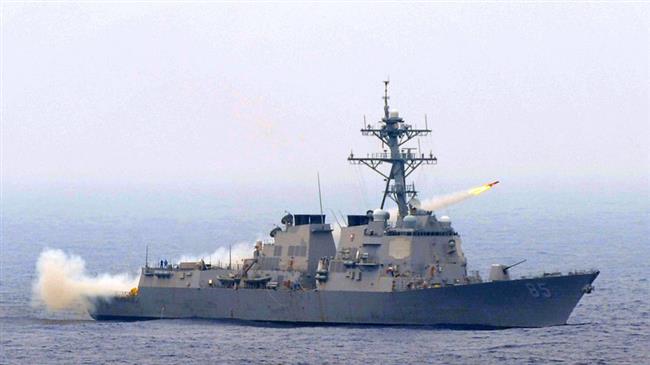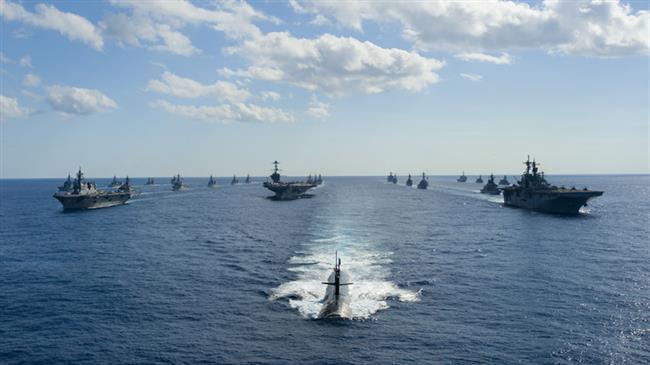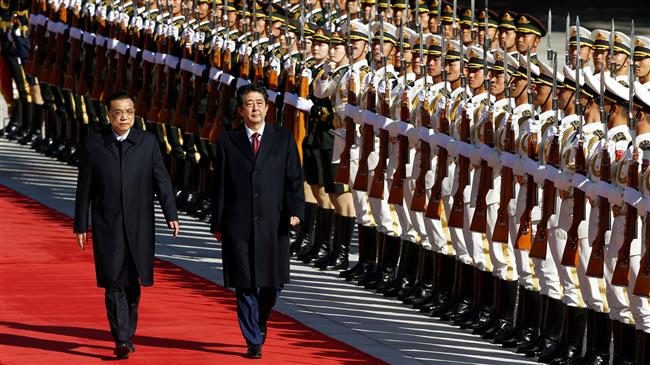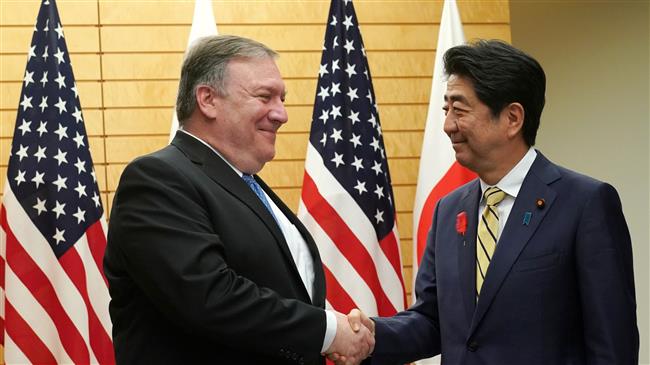Japan seeks record defense spending in 5-year plan: Report
Japan is reportedly planning to increase its defense spending to a record high level over the next five years amid heightened US pressure to buy more American military equipment and join Washington to counter China.
Japan's largest financial daily the Nikkei reported on Saturday that the country’s defense ministry sought to spend at least 240 billion dollars between April 2019 and March 2024, with the military budget rising an average 1.1 percent per year compared with the 0.8-percent growth over the five years through fiscal 2018.
The paper said the proposed spending was in response to security challenges in the region and to narrow trade surplus with the US through additional purchases of American equipment.
Payments on military equipment and personnel expenses currently account for 80 percent of defense spending in Japan, according to the Nikkei.
The Japanese Cabinet aims to approve the new program in mid-December.
Earlier this month, the business paper also reported that Japan was poised to buy 100 F-35 stealth jets from the US at a cost of more than $8.8 billion, a move that suggested Tokyo might be developing aircraft carriers for the first time since World War II.
Japan’s cabinet last December approved the deployment of the US military’s ground-based Aegis missile interceptor system in an alleged attempt to counter purported threats from North Korea missile strike and China’s growing air and sea power in the waters around the country.
Later in January, the US also approved a $133.3 million sale of anti-ballistic missiles to Japan.
Besides the Aegis system, Washington had already equipped Tokyo with Patriot and Terminal High Altitude Area Defense (THAAD) missile systems.
The administration of US President Donald Trump has been pushing Japan to buy more American goods, including military gear, while threatening to impose tariffs on Japanese auto imports to cut a trade deficit with Tokyo.
The claim of ballistic missile threat from North Korea comes as Pyongyang has suspended missile and nuclear testing, demolished at least one nuclear test site, and agreed to allow international inspectors into its nuclear testing sites since Trump and North Korean leader Kim Jong-un met in Singapore at an unprecedented summit to work toward denuclearization and peace on the Korean Peninsula.
The United States has, however, said tough sanctions will remain in place against Pyongyang until its complete denuclearization.
Pyongyang says Washington has betrayed the spirit of the June’s summit by making unilateral demands on the complete, verifiable and irreversible denuclearization, while keeping the sanctions in place.
North Korea has been under a raft of crippling UN sanctions since 2006 over its nuclear tests as well as multiple rocket and missile launches. Pyongyang has firmly defended its military program as a deterrent against the hostile policies of the US and its regional allies, including Japan and South Korea.
Seoul announced on Friday that the government plans to purchase "dozens" of US-built ship-to-air missiles, in an order worth about $300 million.
Dec. 22: ‘Axis of Resistance’ operations against Israeli occupation
‘Abhorrent’: Oxfam says only 12 trucks delivered aid in North Gaza since Oct.
VIDEO | Leader receives religious eulogists on Hazrat Fatima birth anniv.
Pope Francis slams Israel’s ‘machine-gunning’ of Gaza children
US hostage-taking of Iranian nationals violation of intl. law: Deputy FM
VIDEO | Carol Singers for Palestine on London’s Parliament Square
Ansarullah says ‘Israeli terrorists’ incapable of confronting Yemen, warns of secret weapons
VIDEO | Yemenis praise the military for its successful operations against Israel

















 This makes it easy to access the Press TV website
This makes it easy to access the Press TV website